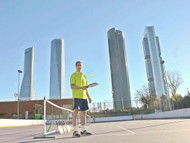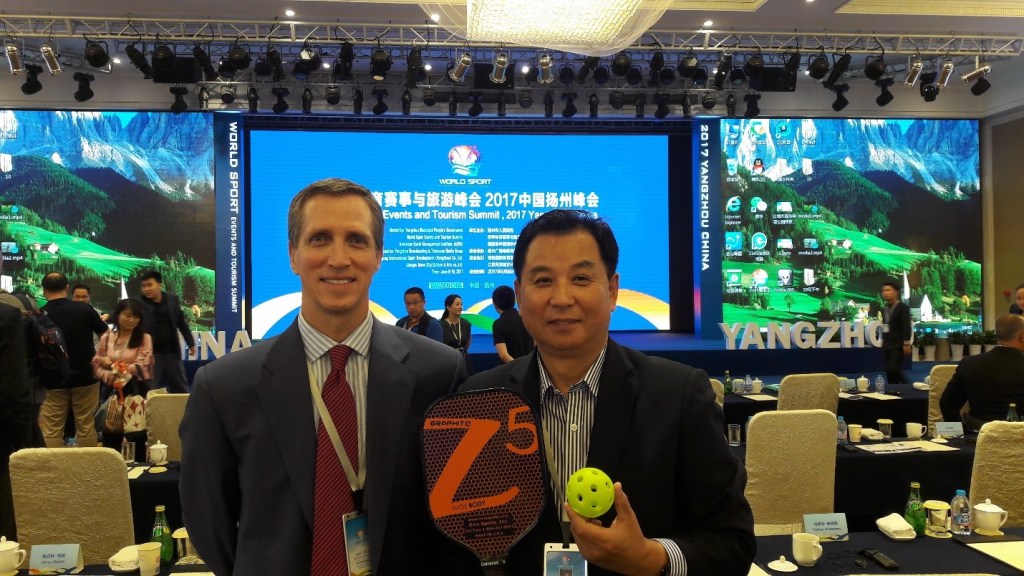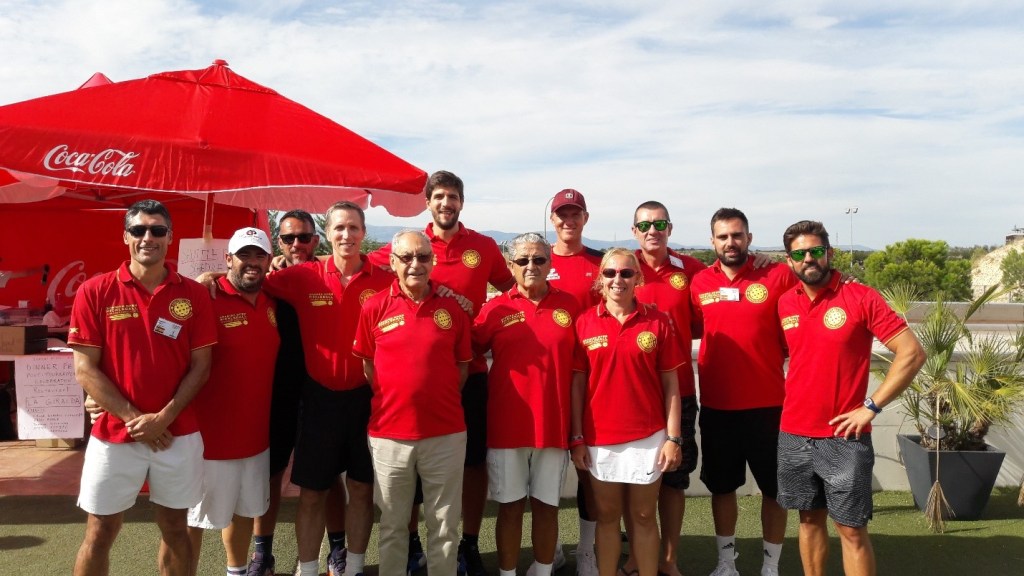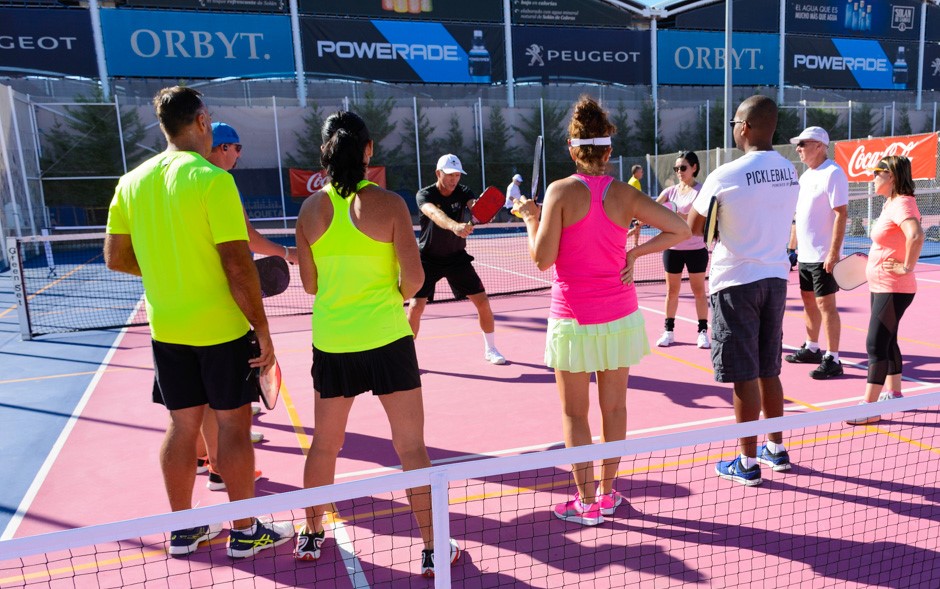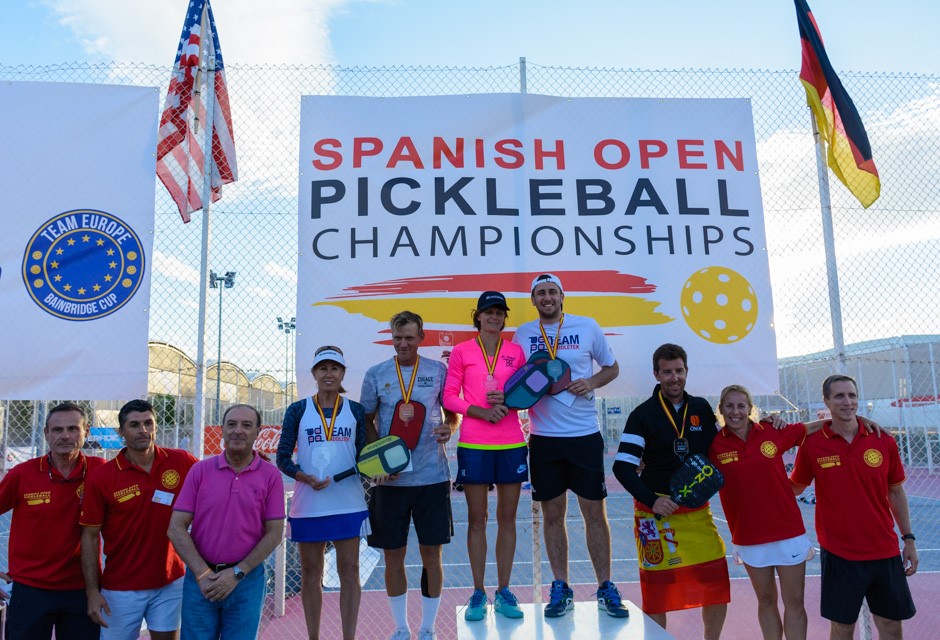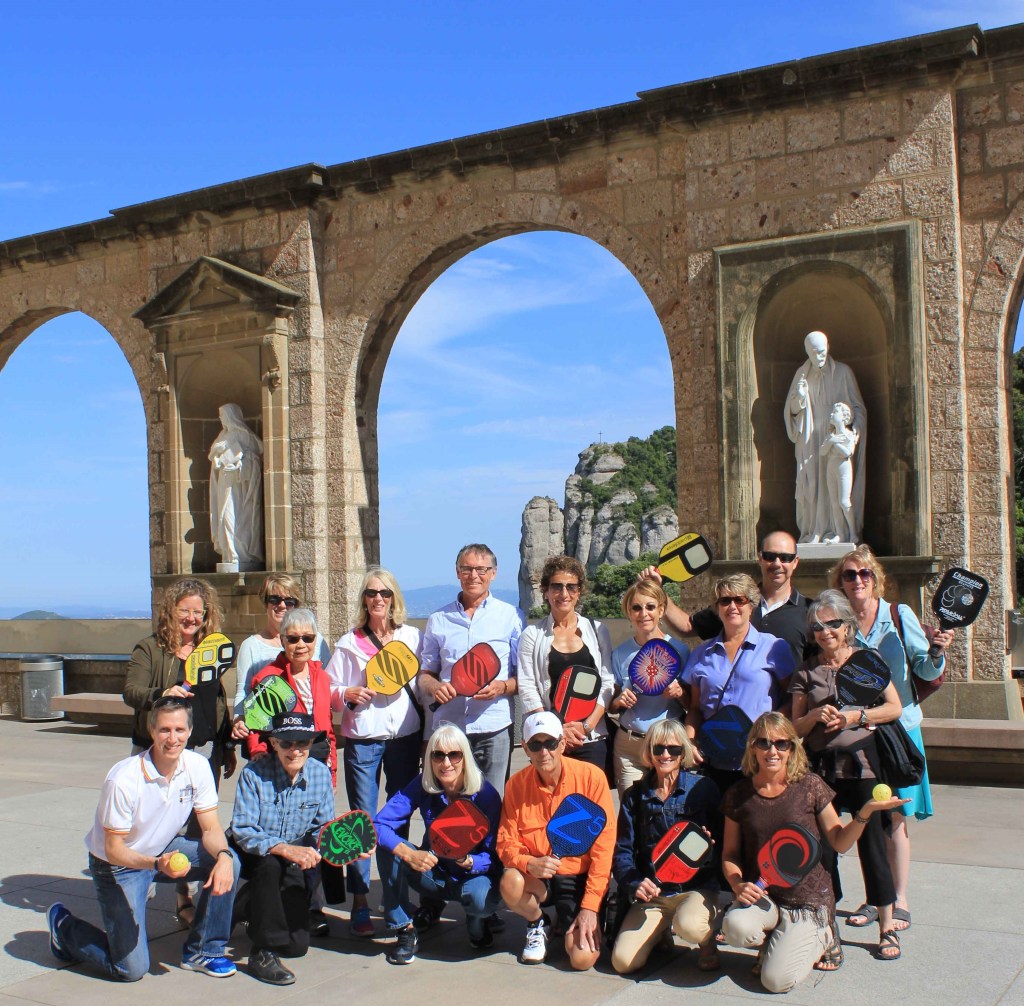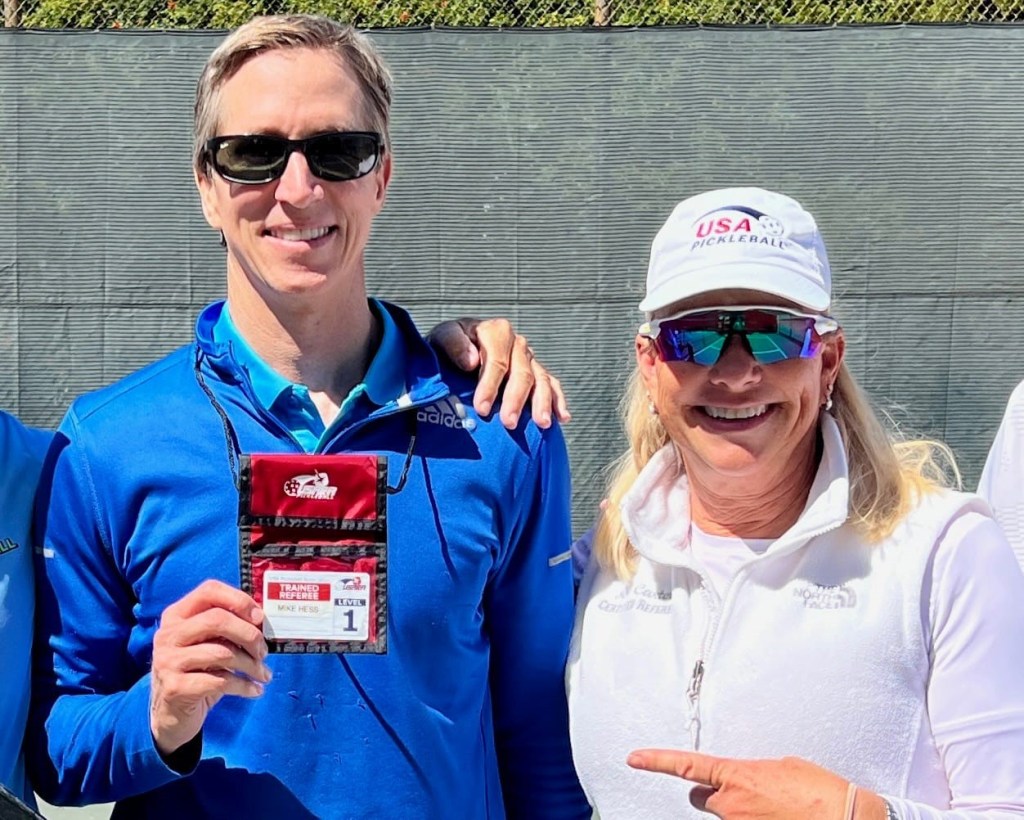Meet Mike Hess, the founder of the Spanish Pickleball Association and long-time global ambassador of the sport. Mike, a native of Southern California, has been living in Europe for the past 28 years. He founded the Spanish Pickleball Association in 2012 and served as President until 2018, laying the groundwork for the growth pickleball is experiencing in Spain today. He also served two years as president of the International Pickleball Federation (IFP) where he presented the sport in many countries such as China. We connected with Mike to hear how he got started with pickleball, learn how he took it to Spain and to find out how the sport is continuing to develop in “Espanya.”
How did you get started with pickleball?
In 2009 I was working as Director of Basketball for the National Senior Games Association (NSGA) and some of the athletes told me about pickleball. It wasn’t an official sport of the Senior Games yet, but I was intrigued and decided to check it out. I had to search to find courts back then, but after watching a few games and observing the players’ interactions, I was drawn to the sport and decided to get involved. I started collaborating with the USA Pickleball Association to improve understanding of how to increase participation and I’ve been working on growing the sport ever since.
What is your background in sport that led you to promoting and developing pickleball?
I’ve always been active in sports. I played many growing up and earned a Division I basketball scholarship to the University of California, Irvine. After playing four years I stayed on as an assistant coach for two years while earning an MBA and then received a contract to play professional basketball in Germany so I moved to Europe. When my hoop-playing days were over, Adidas hired me to work at their headquarters in Germany. I ran the European marketing division for basketball and later worked on global promotion strategies for Adidas-sponsored events like the Olympic Games.
How did you get involved with pickleball outside of the US?
I’ve been living in Europe for the past 28 years. I left Adidas to do a PhD in Business in Barcelona and have been living in Spain for the past 24 years teaching business courses at CUNEF University in Madrid. I spent my summers in the US working with NSGA and USAPA to promote sport participation and decided to initiate pickleball in Spain and Europe where I lived most of the year. In 2012 I founded the Spanish Pickleball Association (SPA) and was president until 2018. I helped several other European countries introduce pickleball and was eventually elected president of the International Pickleball Federation (IFP).
How has the sport evolved in Spain?
Pickleball’s growth in Spain has been terrific. I remain in close contact with my former SPA team who now run the Association, and they tell me that membership is consistently increasing. Spain has sunny, warm weather and an amazing history with tennis and padel (a sport similar to platform tennis). With tennis legend Rafa Nadal and new star Carlos Alcaraz, racquet sports are part of the Spanish lifestyle. An increasing number of permanent pickleball courts is enabling Spaniards as well as travelers visiting Spain to play throughout the country. Growth of pickleball in the US continues to propel the growth overseas, and we’ve had several pickleball ambassadors and pros visit us to share their expertise, among them Jennifer Lucore, Marcin Rozpedski, Irina Tereschenko, Daniel Moore, Dave Weinbach, Jeff Shank and Kyle Yates.
What type of pickleball events and organizations are there in Spain?
We started the Spanish Open Pickleball Championships in 2015 which is held every September and this year will be part of the APP tour. It’s an international event that draws players from around the world. The SPA has done a great job expanding the sport by establishing regional associations. Every year there is an increasing number of places to play, trained coaches, clubs, tournaments, school programs, ambassadors and media coverage. The SPA has also initiated a program with the European Union called “Pickle4all” to promote pickleball as an inclusive sport in multiple European countries. It’s exciting the see the sport expand in so many ways since we began in 2012.
Tell us about the pickleball tours you’ve organized in Spain.
For years pickleball players from the US and Canada asked me to organize pickleball vacations in Spain so they could come and enjoy the incredible sites, history and culture of Spain, as well as play plenty of pickleball on the trip. It was a unique opportunity to combine two of my greatest passions – Spain and pickleball. In 2014 I began organizing tours in Madrid and Barcelona for players of all levels. People from all over the US and Canada have joined the tours and had an amazing experience.
Are people traveling to Spain again?
Fortunately Spain has fully reopened for travel and tourism is booming right now, so I’m excited to finally offer tours again and have two scheduled for September of 2022. Our next pickleball tour is in Southern Spain, the region called Andalusia. It’s a unique part of the world with great weather and incredible sites to explore. All of the tour details are available at www.pickleballtourspain.com.
Now that you’re no longer president of the association, how are you involved?
I talk regularly with Roberto Perez, the current SPA President, about opportunities they’re involved with and considering. Because I travel frequently between the US and Europe, I offer a unique perspective on pickleball’s development. I’ve learned that outside of North America, a key factor impacting pickleball’s growth is the availability of referees. Spain and Europe simply don’t have trained referees and this severely limits their ability to host sanctioned tournaments. This year I obtained my referee credentials from USAPA so I can start training referees in Spain and Europe. My trainer was Teri Carter, the USAPA Certified Referee Coordinator for the West, and she was amazing. Now I’m working with the SPA to develop a pool of referees with training and on-court experience, and I look forward to expanding that base in other European countries as well. I also completed the PPR instructor course this year to improve my coaching skills. I learned a lot from both training programs. It can be challenging to teach in different languages, but I’ve learned that sport is a universal language, and pickleball is a great platform for bringing different cultures together.
Share Product:
SHARE THIS:


